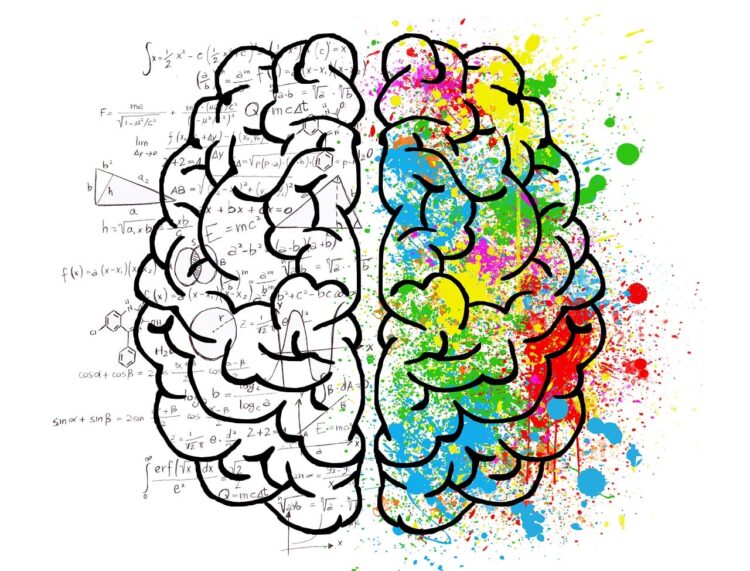Is Web Development Hard? Fact or Fiction
Updated: January 23, 2024
Published: November 27, 2018

The internet is nothing short of gigantic. Did you know that there are over 1.8 billion websites as of January 2018? That’s an insane amount. That means that people all over the world are creating these sites — which means there’s a vast market in developing websites.
Web development is a lucrative and popular career that is very relevant today. For those of you who may be considering it as a degree, you might be wondering, is web development hard?
If you take a look online, you will find many forums, such as Reddit, and blogs about the difficulty of web development. Considering the common thought that web development is too hard, it may be worrisome to those interested and considering taking a “webdev” degree.
Like many degrees and careers, there are sometimes misconceptions and myths regarding what they are actually like. Web development is no exception. There are some myths as to what web development is, what it takes, and how it’s done.
If you’re curious as to whether or not web development is too hard, keep reading. We will show you common thoughts about web development and whether they are fact or fiction.
Source: Pixabay
What Is Web Development?
Let’s first explain a little bit about what web development is. Web development is the coding and programming of websites and web apps. It involves building and maintenance. Basically, it’s the behind the scenes of a website that looks good and works well. The main goal of a web developer is to create a website with the best user experience possible.
There are three main types of web development and knowing what they are can better help you decide what to choose.
Front-End Developer
Layout, design, interactivity. This is the client-side of the website. The front-end developer focuses on the user’s experience and how things look. This could be suitable to the more right-brain or creative personality type.
Back-End Developer
The brain behind the curtain. This is the server-side of the website. The back-end developer focuses on coding and provides the data. This could be fitting for the left-brain or logical thinker.
Full Stack Developer
Takes care of both front- and back-end. This could be the best option for those who are great multi-taskers and like to work on a full project and see the big picture.
Fact or Fiction?
Let’s set the record straight and get to the myths and truths about web development.
1. Fiction: Web design and web development are pretty much the same.
The truth: The terms may be used interchangeably sometimes and may even resemble each other, but they are quite different. Both have the same goal — to create a great website. But there are some major differences.
- Web design involves graphics and graphic design software to create a look and visual aesthetic. UX/UI (user interface and user experience) is the main goal of the web designer.
- Web development is the backbone of the website — the tech and coding side of the project.
- The design and the coding is webbed together in order to come to life online as a website. But the coding doesn’t necessarily have to be done by the web designer.
- Web design and web development are in many cases separate jobs, but for the well-rounded multi-taskers, it can be done by the same person.
Fast fact: 48% of people cited a website’s design as the number one factor in deciding the credibility of a business.
Source: Pixabay
2. Fiction: Building a website is the hard part. After that, you’re all set.
The truth: Maintenance of the website is a continuing process. There is no beginning or end to the web development process. It’s ongoing as technology and content is constantly changing. That means the website has to keep up with the pace.
Fast fact: Most companies redesign their site every two to three years to make sure they are up to date with industry standards. A two-year-old company is likely to be considered “too old.”
3. Fiction: You need to have all the skills.
The truth: Specializing in the main skills needed is more attractive to employers. The five high-demand skills for web developers are:
- Javascript
- iQuery
- HTML/CSS
- PHP
- JAVA
Aside from the tech skills needed, it’s always important to have the soft skills or qualities that help you succeed, such as communication, motivation to learn and adapt, time management, concentration, attention to detail, and being able to prioritize.
Fast fact: HTML (Hyper Text Markup Language) and CSS (Cascading Style Sheets) are the building blocks of web coding. Without these two fundamental skills, you’re not a web developer!
4. Fiction: Everyone today can build websites themselves. It’ll be hard to find jobs.
The truth: Developing a website requires industry knowledge and skills. And the reality of it is that everyone wants a website and not everyone is willing to put the time, effort, and money into making one on their own. The DIY scene may be great for home furniture, but it doesn’t always relate to making websites.
Wondering where to look for web developer jobs? Skillcrush has a great article about where to find your next web developer job. The list includes general job sites, startups, remote work, mobile development, and WordPress positions.
Fast fact: Employment of web developers is projected to grow 13 percent over the next ten years, faster than the average for all occupations.
5. Fiction: You need a background in computer science.
The truth: The educational requirements for a job in web development are going to depend on the work setting, whether it’s an employer or if it’s a freelance gig. The most common degree requested is an associate degree in web programming.
The more specialized web developer positions, like back-end developers, usually require a bachelor’s degree in computer science. We, at University of the People, offer a fully online tuition-free degree in computer science. It can be a useful option for those looking to advance in the web development field.
Although computer science will provide knowledge and concepts of web development, many web developers are self-taught and go on to be master “web devs.”
Fast fact: A recent study shows that nearly 70% of all developers are at least partly self-taught, with 13% of respondents reporting they are exclusively self-taught. Less than half have a degree in computer science or a related field, and only 2% have a PhD.
Source: Pixabay
6. Fact: You need to know how to code.
For the most part, coding is part of the game. Considering that the coding languages of HTML and CSS are the basics of web development, you’re going to need to know how to code to be a true web developer.
That said, coding is only part of the package. And for those who aren’t yet familiar with coding, don’t worry! There are endless resources for those ready to learn, from Youtube videos to coding “bootcamps” to full courses available online, and for free!
There are, however, DIY-style web design platforms like Wix and WordPress, where you don’t need to code because everything is user-ready. These are the web platforms that lots of people love to use because it enables them to build their own sites. But even those sites were built by people — and those people are web developers!
Fun fact: Steve Jobs and Steve Wozniak, the co-founders of Apple, began their coding careers as teenagers when they created the arcade game Breakout.
7. Fact: It will take time and perseverance.
And commitment and passion and dedication and motivation. Should we keep going? You might be wondering how much time is needed to learn web development. The real answer is: the learning is ongoing. Learning and working in web development takes effort and time. So you’re never really done with the learning part. It can take years to master the skills of a good web developer.
But don’t they say that nothing worthwhile comes easy? Web developers will surely agree with that one. That moment when you click on the link to the website you’ve been working on for months and it opens up to a beautiful and well-functioning page? Well, that’s a rewarding feeling.
Fast fact: Depending on quality, a website can take anywhere from a week to two years to build.
8. Fact: You can use Google if you’re stuck.
Google can and will be your friend. You can search how to troubleshoot and other issues that will surely come up in the site-building process. Especially for self-learners, using “Doctor Google” helps us get through bumps in the road.
Fun Fact: Google has a Technical Development Guide for anyone interested in learning and developing their technical skills online.
Source: Pixabay
9. Fact: Web development involves creativity.
We don’t mean that you need to know how paint and draw. But creating a website is just that — a creation! It involves starting something from scratch, and that in itself is a creative endeavour. Plus, in the web development world, things are always changing and developing, which gives your creative side some use.
Think coding is purely logical and mathematical? Here’s one full-stack web developer’s take on how coding is actually creative.
Fast Fact: Many employers will look for creativity and imagination as a skill set to have as a web developer.
10. Fiction: I need to know every framework ever released.
The truth: It’s not feasible. There are just too many frameworks. It’s best to get familiar with the most popular ones.
Development frameworks are software tools that other web developers have created to reach a certain technological goal or make developing in a certain language easier. There are many frameworks available for developers to use. But the key is to be specific and to know what to use and for what. If you’re curious, here’s a list of popular frameworks that every web developer should know.
Fast Fact: Since the early 2000s, almost all web developers use an existing web framework.
11. Fiction: You need to be a genius.
The truth: You don’t need to be the next Tony Stark to develop websites. Although there are web wizards out there, you don’t need to be a genius to be a successful web dev. All it takes is learning the skills and staying motivated — like in most professions.
Want some inspiration? Check out this talk by Django developer Jacob Kaplan Moss, who explains why it’s a myth that you need to be a genius to be a well-known figure or leader.
Fast Fact: According to Data USA, there are 167,823 employed web developers. They aren’t all geniuses — they just put in the work to gain new skills, and you can too!




